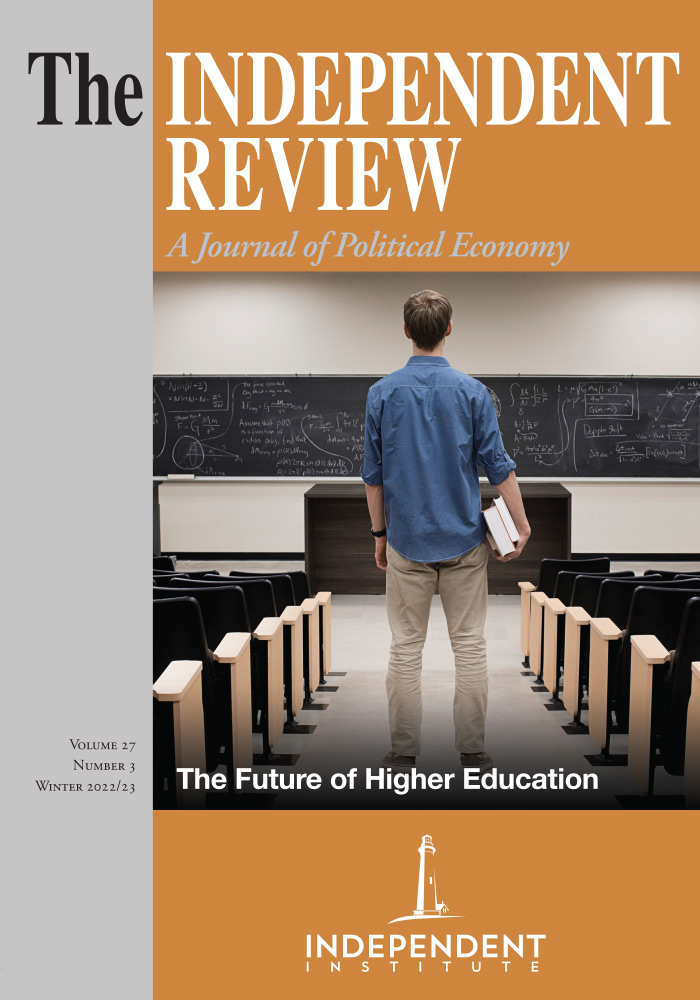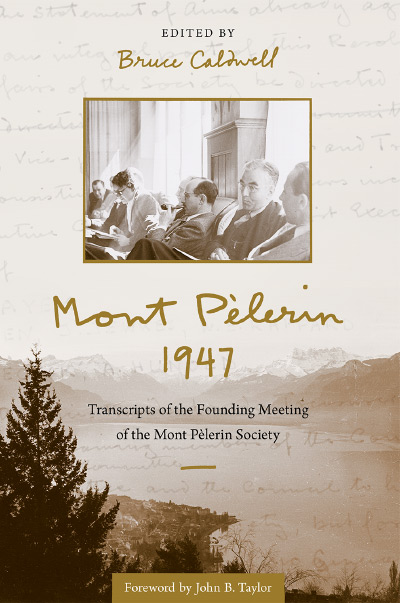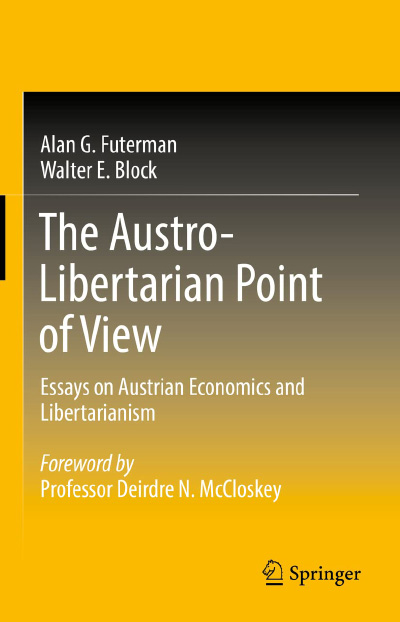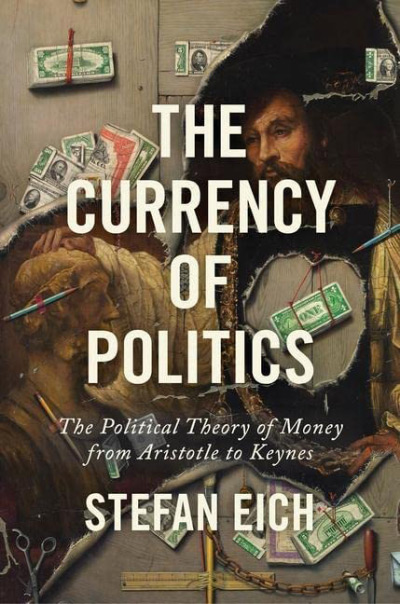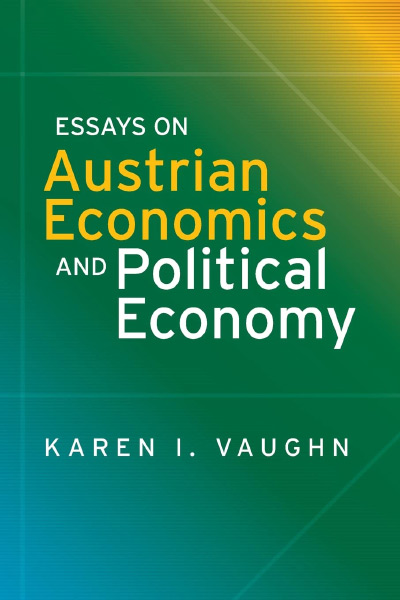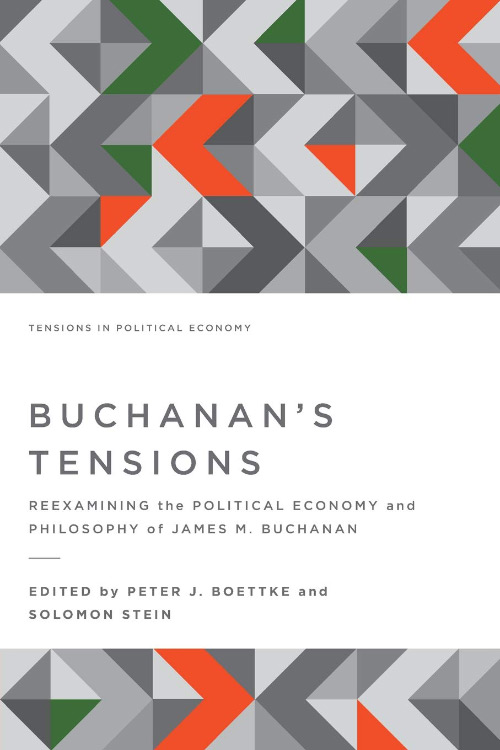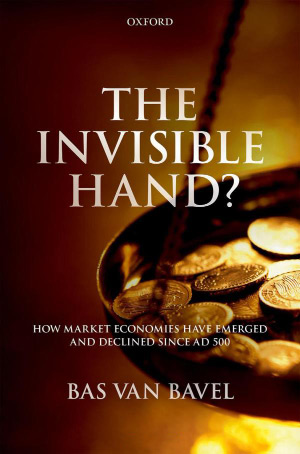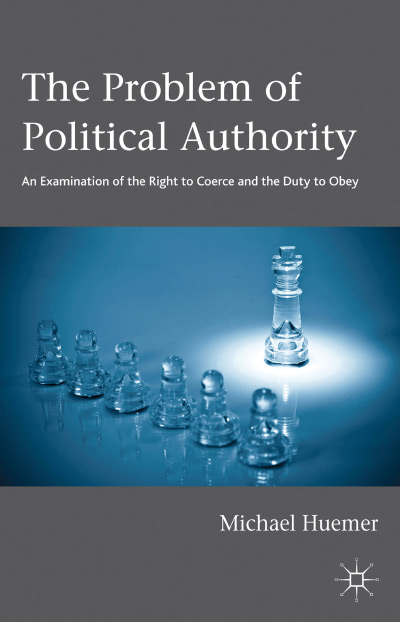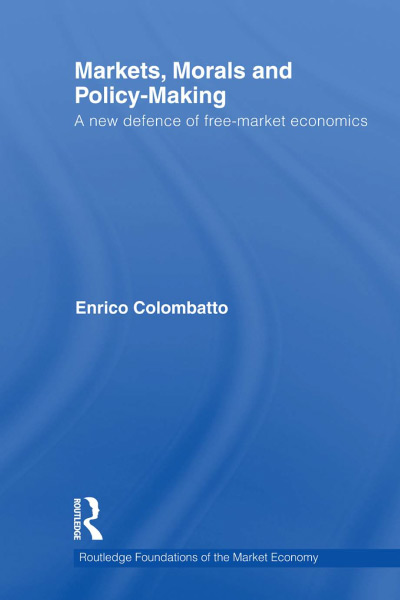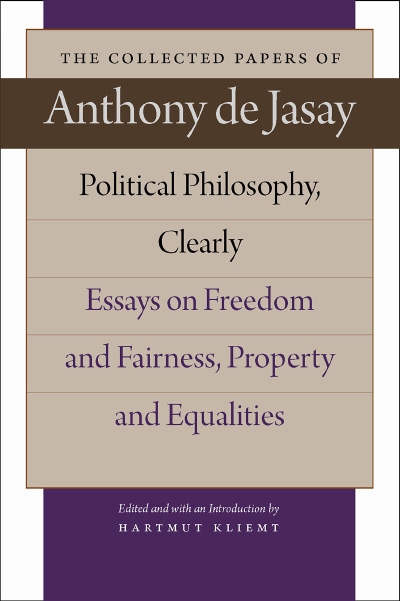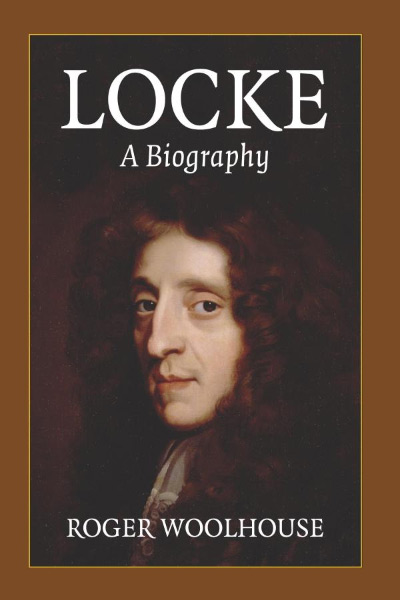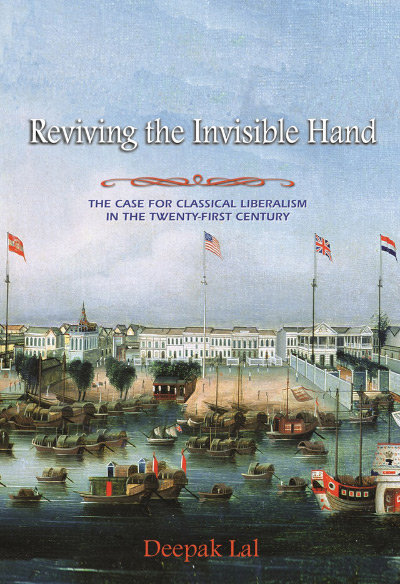In the late 1930s, during the worldwide Great Depression and as the totalitarian threat loomed large, a group of scholars gathered in Paris to discuss the fate of liberalism in a world seemingly going mad. The Lippmann Colloquium was to be the start of an ongoing effort, in which F. A. Hayek and Lionel Robbins (who did not attend but also provided extensive comments on Walter Lippmann’s manuscript) would play a significant role along with the now elder statesmen of the liberal cause such as Ludwig von Mises and Frank Knight (who was not there, but who—along with Henry Simons—had provided Lippmann with comments on his manuscript). However, these efforts never got off the ground due to World War II. The fate of liberalism and Western civilization weighed in the balance.
After the allies emerged victorious, the fate of liberalism still was unclear. Much work needed to be done to emerge from the ruins of the Great Depression and World War II, but now attention also needed to be paid to the Cold War and the Soviet superpower. In this context, F. A. Hayek hoped to get the band back together again. The attendees of the Lippmann Colloquium included the following: Raymond Aron, a French philosopher, sociologist, journalist, and political scientist; Auguste Detoeuf, a French economist; Friedrich Hayek, an Austrian and British economist and philosopher; Walter Lippmann, an American writer, reporter, and political commentator; Étienne Mantoux, a French economist; Robert Marjolin, a French economist and politician; Louis Marlio, a French economist; Ernest Mercier, a French industrialist; Ludwig von Mises, an Austro-Hungarian–born economist; Michael Polanyi, a Hungarian-British polymath; Stefan Thomas Possony, an Austro-Hungarian–born economist and military strategist; Wilhelm Röpke, a German economist; Louis Rougier, a French philosopher; Jacques Rueff, a French economist; and Alexander Rüstow, a German sociologist and economist. Walter Eucken, a German economist, was invited but could not attend.
The group, which originally met in 1938, was divided between those interested in a full-throated defense of Manchester Liberalism or laissez-faire, and those who thought a middle ground could be steered between the “wooden” conception of laissez-faire and totalitarian control of the economic and political life, a more social market economy perspective. This division, as the transcripts reveal, picked up in 1947 where it left off in 1938.
After World War II, Hayek began efforts to reconvene the ongoing conversation that began in Paris—a conversation that he believed was essential both to the world of ideas and the world of practical affairs. Hayek, it is important to remember, had already written to friends such as Fritz Machlup that his greatest contribution to science, scholarship, and society was his “Abuse of Reason” project, which he started working on during the wartime 1940s. The Road to Serfdom (1944) emerged from that project, but so too did The Counter-Revolution of Science (1952). To say the fate of liberalism was on Hayek’s mind would be an extreme understatement. Hayek was concerned that the thirty years of World War I, the Great Depression, and World War II had destroyed the intellectual argument for liberalism among academics and intellectuals. Thus, the fate of liberalism, Hayek believed, turned on cultivating a constructive and creative conversation among the leading minds in the social sciences and humanities. It is important to stress that Hayek’s original proposal was for this new society to be modeled on the British Academy, where only the elite of the elite were brought together to explore ideas through rigorous and unfettered discussion. Hayek’s original list of invitees included only academics and writers, except for the Swiss organizer Albert Hunold. And although all invitees were of the liberal persuasion broadly understood, they were not by any means doctrinaire liberals in the nineteenth-century sense of that term.
As Hayek set to work on his proposal for the meeting and the founding of this new intellectual society, he circulated his proposal among his friends. Mises’s reaction to this proposal is intriguing. In a memo dated December 31, 1946, and entitled “Observations on Professor Hayek’s Plans,” which was included with his direct response letter objecting to particular participants as committed “interventionists,” Mises concluded: “The weak point in Professor Hayek’s plan is that it relies upon the
cooperation of many men who are known for their endorsement of interventionism. It is necessary to clarify this point before the meeting starts. As I understand the plan, it is not the task of this meeting to discuss anew whether or not a government decree or a union dictate has the power to raise the standard of living of the masses. If somebody wants to discuss these problems, there is no need for him to make a pilgrimage to the Mount Pèlerin. He can find in his neighborhood ample opportunity to do so” (found in the Ludwig von Mises Collection, Grove City College library in folder containing Mises’s correspondence with F. A. Hayek. Archives accessed July 2015.)
Mises’s liberalism was an uncompromising laissez-faire, but those who could be enlisted to the general liberal cause in the aftermath of World War II, Hayek understood, must represent a much broader spectrum—similar to those divisions in 1938 between Manchester liberalism and social market economy liberalism. Mises argued to Hayek that the liberal cause was lost because of compromise, not because of strict adherence to principle. At one point in the transcripts Mises is quoted as saying: “If it is true as has been suggested, that I am defending orthodoxy of the 18th century, then it is true that I am defending it against the orthodoxy of 17th century” (p. 100). In other words, the liberalism of Hume and Smith against the mercantilist doctrine that guided public policy in the seventeenth and eighteenth centuries. The flexibility among liberals to compromise with interventionists was their undoing, according to Mises.
Mises’s strident opposition to interventionism is on full display in these transcripts, especially with respect to the competitive order and the rules and regulations necessary to sustain it. As Bruce Caldwell points out in his wonderful introduction to this volume, Hayek also received criticism of his plan from Karl Popper, who was the diametric opposite of Mises. Any meeting that would be useful, Popper insisted, must also have participants who were closer to the socialist position. Hayek stuck to his plan and both Mises and Popper attended, despite their reservations.
They would be joined by the following in attendance: Maurice Allais, Carlo Antoni, Hans Barth, Karl Brandt, Herbert Cornuelle, John Davenport, Stanley Dennison, Aaron Director, Walter Eucken, Erich Eyck, Milton Friedman, Harry Gideonse, Frank Graham, F. A. Harper, Henry Hazlitt, Trygve Hoff, Albert Hunold, Carl Iversen, John Jewkes, Bertrand de Jouvenel, Frank Knight, Henri de Lovinfosse, Fritz Machlup, Loren Miller, Felix Morley, Michael Polanyi, William Rappard, Leonard Read, George Revay, Lionel Robbins, Wilhelm Röpke, George Stigler, Herbert Tingsten, Francois Trevoux, Orval Watts, and Veronica Wedgwood. Dorothy Hahn, who worked with Hayek at the LSE, kept the transcript of the meeting from which this book draws. In his opening remarks Hayek also lists those who expressed sympathy with the aims of the conference and who wished they could have attended the meeting but were unable, and these include academics such as Howard Ellis, Eli Heckscher, Friedrich Lutz, Arnold Plant, and Alexander Rüstow, and writers such as William Henry Chamberlin and Walter Lippmann.
Hayek wanted to accomplish more than merely forming a community of likeminded scholars and intellectuals throughout the world. He hoped that through their intense discussion—if it could be prevented from degenerating into fractiousness— they could jointly explore the difficult questions and finer points of the argument that would lead to an improved understanding of, and restatement of, the liberal principles of political economy and justice that would meet the challenges of the postwar world. This was no small task, but it could be achieved only if the discussion between the leading liberal thinkers could get started. This meeting, and the society that would be formed from it, would hopefully provide that.
“The basic conviction which has guided me in my efforts,” Hayek stated in his opening remarks, “is that if the ideals ... which I believe unite us, and for which, in spite of abuse of the word, there is still no better name than liberal, are to have any chance of revival, a great intellectual task is in the first instance required before we can successfully meet the errors which govern the world today. This task involves both purging traditional liberal theory of certain accidental accretions which have become attached to it in the course of time, and facing up to certain real problems which an over-simplified liberalism has shirked or which have become apparent only since it had become a somewhat stationary and rigid creed” (p. 55).
Readers will be fascinated by the discussion that follows concerning monopoly and antimonopoly policy, monetary theory and policy, taxation and redistribution, trade, migration, and foreign policy. The debates are surprisingly (or frustratingly) fresh when related to the current discourse of practical affairs of our age. We are debating many of the same issues seventy-five years later without perhaps much more clarity than was on display then. One of my favorite lines in the transcript comes not from Hayek, but from Lionel Robbins when he stated: “We agree with Professor Mises that most of the interventions of the state in regard to the working of the market mechanism have been bad. I hope we should agree with Professor Mises also that one of our main tasks is to re-educate the world to understand the functions performed by the market and by free enterprise” (p. 101). What followed, however, was an effort among the participants to push Mises to articulate the limits of his principle. He was unwilling to play their game. His adversaries, however, portrayed Mises’s position in a way that wasn’t actually his. Mises was assumed to be arguing for simultaneously an idealized perfect market economy and the absence of any rules of governance other than the profit motive. “Perfect freedom exists in the jungle,” Frank Graham interjected. “There is no law there,” he continued, and if we listen to Mises, Graham suggests, “we shall be in the jungle.” Rather than fall into this trap, we must, Graham insisted, “find the middle road between the jungle and the jail” (p. 102).
Mises’s response to this was simple and straightforward. “Should society be based on public ownership, or private?” (p. 103). Mises made it clear to all that he favored private enterprise, but obviously implicit in that endorsement was an institutional framework of private property, freedom of contract, and the rule of law. That none of his critics were willing to engage Mises at this level is telling. He did not oppose the critical idea of the necessity of an institutional framework, but his criticisms were of the content of that framework being proposed by various parties to this conversation. The content offered by the Ordo liberals and the policy pragmatists was a reflection, in Mises’s mind, of those “accidental accretions” that had attached themselves to liberal doctrine. A young Milton Friedman intervened in the discussion, objecting to Mises’s hardline stance, and stated the following: “We are all opposed to the government-created monopolies. Those things are only passed over because we are all opposed to them. However, where we differ: 1. in finding out the truth 2. in the best way of presenting the matter to the public” (p. 102).
This sort of back-and-forth among the participants accompanied the entire array of issues listed in the conference agenda and oscillated between the strident defense of liberal principles and the supposedly sophisticated presentations of liberal compromise with the prevailing state of public opinion and worldly affairs. Collective action is required, taxation must be collected for that purpose, and compromise must be part of building a new consensus for a new liberalism in the postwar world. And the institutional framework of what constitutes the social order must be central to the enterprise of spreading the ideas of liberalism. But in the seventy-five intervening years, has anyone at any of the numerous Mont Pèlerin meetings really given a persuasive answer in defining precisely what the rules of the game should be? They must be somewhere between the jungle and the jail, the demarcation spectrum as dictated by Graham. But have the subsequent decades of discussion drawn us to a good method of locating the optimal policy spot on that spectrum?
At a conference at the LSE that I was fortunate enough to participate in during the early 2000s, the economist Anne Krueger had the following reaction in response to my presentation: “No offense to my George Mason friends, but we all now know about the benefits of the market economy. What we are searching for is reasonable regulations not capturable by interest” (emphasis added). I weighed my options in responding, and then simply said, “What if that is a null set?” Surely the person who coined the term rent-seeking understood the issue I was raising. Surely someone who had studied the economy and the regulatory apparatus in such detail could provide a quick answer if one was easily to be found. There was in fact no answer forthcoming, and I guess my response was considered outrageous by those in attendance, when to my mind I was merely asking for an empirical example of those reasonable regulations that are in fact not captured by interests. The silence was broken up by a quip from Andrei Shleifer, who simply said, “Why are you so unreasonable?” and laughed. The discussion moved on to the next paper.
As a result of this, and other experiences, I sympathize with Mises’s plight as I read the transcripts of the first Mont Pèlerin Society (MPS) meeting, but I also understand the pushback and the give-and-take that followed. I have been a member of the Mont Pèlerin Society since the 1990s and had the great honor to serve as its president from 2016 to 2018. When I became president, I did the academic thing and actually spent time reading through the historical documents about the founding and subsequent history of the organization to supplement my own experience. I also read the vast critical literature that has arisen in the last few decades that dives into the operation and influence of MPS on practical affairs. I came to appreciate greatly the contributions of Lionel Robbins and his defense of cosmopolitan liberalism in a world torn by war. There was something very important and symbolic in Hayek insisting on the involvement of Walter Eucken as a German economist in the first such gathering after World War II. In my own presentations at MPS over the years, I have attempted to represent that cosmopolitan vision of liberalism that I sincerely believe to be the guiding ideology of Mises, Hayek, and Robbins to the best of my abilities (see The Struggle for a Better World, Arlington, Va.: Mercatus Center 2021).
That vision of true radical liberalism is evident in the 1947 transcripts that Caldwell has edited, but so too are the positions of more traditionalist conservative thinkers as well as the more politically pragmatic. Opposition to totalitarianism and collectivism has many different factions. Economists and social scientists have different methodological and analytical points of departure among them. There was never a “position” that represents the MPS, except for a steadfast commitment to discussion. For an example, see the discussion/debate of the Statement of Aims in this book, and then look at the final adopted Statement of Aims. Do note that this document ends with the following declaration: “The group does not aspire to conduct propaganda. It seeks to establish no meticulous and hampering orthodoxy. It aligns itself with no particular party. Its object is solely, by facilitating the exchange of views among minds inspired by certain ideals and broad conceptions held in common, to contribute to the preservation and improvement of the free society.”
These guiding principles for MPS were evident in 1947, and if a transcript was to be kept this fall in Oslo, it would be true in 2022. There is simply no “neo-liberal thought collective” being orchestrated, but rather a debate society among practitioners of the social sciences and humanities, intellectuals, and public policy analysts. The past seventy-five years have witnessed the ebbs and flows as the intellectual fads and fashions and practical affairs of the times have dictated. At some points in time the consensus among members was more traditionalist, pragmatist, or principled liberal, or no consensus was reached and fractious discussion followed. Caldwell’s volume has plenty of drama, but subsequent histories, such as Max Hartwell’s (A History of the Mont Pelerin Society, Indianapolis: Liberty Fund 1995), demonstrate that the drama never really subsided. And I can attest that in the years since Hartwell’s book was published, MPS internal turmoil and drama continues right alongside its continuous efforts to reconstitute and reinvigorate society to meet the challenges to the liberal order in the twenty-first century. Those challenges have not been trivial, and include 9/11, the global financial crisis, and the COVID-19 pandemic.
Bruce Caldwell, as is his habit, has produced an essential work for scholars and intellectuals interested in the life and times of F. A. Hayek, and the fate of classical liberalism in the twentieth century. His introduction is a balanced and masterful history, and the transcript itself is a fantastic resource. Caldwell arranged to also include the archived photographs from the original meeting in order to add life to the presentation. The Hoover Institution has produced a beautiful book. Readers of The Independent Review will greatly enjoy the content. They will be remarkably familiar with some of the material, but they also will find many surprises. They may be inspired by Mises’s commitment to principle. Or they may find the more flexible stance of others more palatable, including that intervention of Milton Friedman’s as he focuses on the reception of these ideas among the public. The entire conference held in 1947 is fascinating to consider. As Hayek says in his opening remarks, “I must confess that now when the moment has arrived to which I have so long looked forward, the feeling of intense gratitude to all of you is strongly mixed by an acute sense of astonishment at my own presumption and audacity in setting all this in motion ...” (p. 54). Caldwell’s book invites you to become an eyewitness to history. As I hope you’ll see for yourselves, it truly was an audacious act on Hayek’s part to cultivate this continuous conversation about the foundations of the liberal order.
| Other Independent Review articles by Peter J. Boettke | ||
| Fall 2023 | Don Lavoie: The Failures of Socialist Central Planning | |
| Summer 2022 | Academic Entrepreneurship in Sometimes Hostile Environments: James Buchanan and the Virginia School of Political Economy | |
| Spring 2022 | Albert O. Hirschman: An Intellectual Biography | |
| [View All (13)] | ||

